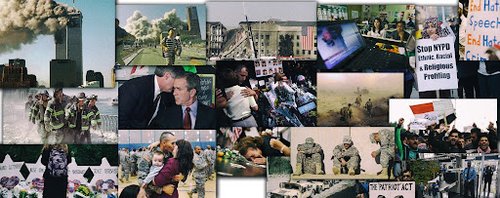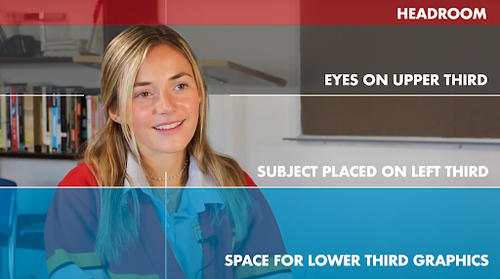
The September 11 attacks marked one of the most significant events of American history. Current high school students were born years after the attacks, but are surrounded by people with vivid memories of the events, either from the news or in-person on that day.
How are students today learning about the September 11 attacks and the world events that resulted?
If you plan on having a classroom discussion before assigning this challenge, use this Classroom Conversations Guide to help students feel prepared and supported.
Determine the kinds of sources that will be helpful in answering compelling and supporting questions, taking into consideration multiple points of view represented in the sources, the types of sources available, and the potential uses of the sources. (NCSS D1.5.9-12)
Students leverage technology to take an active role in choosing, achieving and demonstrating competency in their learning goals, informed by the learning sciences. (ISTE)
Explain how a question reflects an enduring issue in the field and explain points of agreement and disagreement experts have about interpretations and applications of disciplinary concepts and ideas associated with a compelling question. (NCSS D1.1.9-12 - D1.2.9-12)
Students communicate clearly and express themselves creatively for a variety of purposes using the platforms, tools, styles, formats and digital media appropriate to their goals. (ISTE)
Journalism
Video Production
Civics
History
Projects
Beginner
Intermediate
Advanced
Mic
Computers
Camera or Mobile Phone
Internet
1-5 Days
Choose one of the storytelling activities below. You can choose to conduct interviews in-person or via Zoom/video conference.
1: Interview with a teacher
Interview a teacher at your school about life before, during, and after the September 11 attacks. Find a teacher who you know talks a lot about civics, politics, government, and history (preferably a social studies teacher). Alternatively, find someone who was in your current grade at the time and interview them.
2: Interview with a family member or community member(ex. Service members, firefighter, EMT, NYC resident during 9/11 attacks, etc.)
Interview an adult about life before, during, and after the September 11 attacks.
3: Interview with another student.
Interview a fellow student about what they know and don’t know about the September 11 attacks and how they believe it may have impacted their family and community.
STORYTELLING ASSIST: Read through our ART OF THE INTERVIEW SLIDES for tips and tricks
Please use these questions as a guide, not a script. Pick the ones that speak to you as the interviewer and help you tell a cohesive story about your subject’s experience. Add your own questions and ask good follow up questions. Whether you’re answering the questions or interviewing someone else, please make sure the person on camera answers in full sentences and includes the question in their response. For example: “Do you think it’s important for students to learn about the 9/11 attacks? Why or why not?” “I think it’s important for students to learn about the 9/11 attacks, because…”
STUDENT TO ADULT INTERVIEW QUESTIONS:
TEACHER-FOCUSED INTERVIEW QUESTIONS:
ADULT TO STUDENT OR STUDENT TO STUDENT INTERVIEW QUESTIONS:
ON CAMERA IDENTIFICATION: For the record, please say and spell your full name (first and last) on camera. Also please describe how you want to be identified in this video. For example, “I’m an 11th grade student at Canyon High School in Santa Clarita, California” NOTE: SRL’S EDITORS NEED THIS INFORMATION AND WON’T BE ABLE TO PUBLISH YOUR VIDEO WITHOUT IT

EXAMPLE OF DESIRED COMPOSITION FOR RAPID RESPONSES:
Looking at the camera, centered, from the chest up, eyes on upper third, normal headroom.
USE/DOWNLOAD: SRL RAPID RESPONSES SKILLS AND STANDARDS CHECKLIST
This challenge does not have an active deadline to submit to PBS NewsHour Student Reporting Labs. However, students are encouraged to publish their stories on their school/club/program website or through video/social platforms such as YouTube, Instagram or Twitter and tag Student Reporting Labs. Check with your teacher to find out instructions for class submissions.
FACEBOOK: /STUDENTREPORTINGLABS